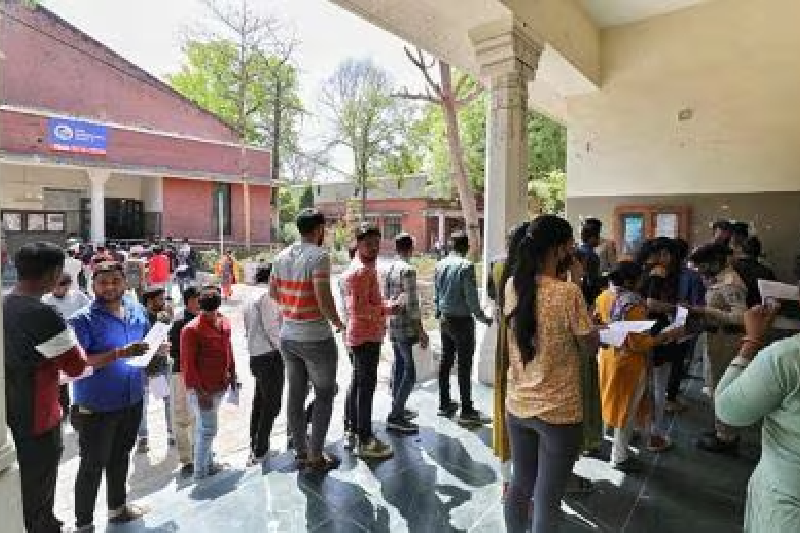
ICAR Counselling 2025: Online Admissions for UG, PG, and PhD Courses to Begin September 2
The Indian Council of Agricultural Research (ICAR) has finally announced that its long-awaited counselling process for undergraduate, postgraduate, and PhD admissions will begin on September 2, 2025. This decision comes nearly two months after the National Testing Agency (NTA) declared the results of the CUET-UG examination on July 4, 2025, leaving thousands of aspiring agricultural students anxious about their academic future.
Counselling Schedule and Process
The online registration for ICAR counselling will open on September 2 and remain active for about a week. Once registrations are completed, the rank list is expected to be published in the third week of September. The first round of seat allotment and reporting to colleges is tentatively scheduled between September 15 and 17, 2025.
ICAR counselling plays a critical role in filling seats across various agricultural universities in India. The allocation system is as follows:
- 20% seats in State Agricultural Universities (SAUs)
- 100% seats in Central and Deemed Agricultural Universities
- 20% seats in Central Universities such as Banaras Hindu University (BHU) and Visva-Bharati University
The counselling process covers popular agricultural and allied courses, including BSc Agriculture, Forestry, Horticulture, and BTech programmes in Agricultural Engineering and Dairy Technology.
Reason Behind the Delay
According to Dr. J.K. Jena, Deputy Director General (Education), ICAR, the admission process was initially scheduled to begin on July 31, 2025. However, the counselling was postponed due to two significant reasons:
- A delay in receiving candidate data from the National Testing Agency (NTA).
- Requests from several State Agricultural Universities and Deemed Universities to extend the timeline for admissions.
This postponement has created significant challenges for thousands of students waiting for clarity on their admissions.
Impact on Students Across States
The prolonged uncertainty has caused widespread distress among students and parents, forcing many to seek backup options in state universities and private institutions, where admissions and classes have already begun.
- In Odisha (Baripada), a Class 12 graduate with over 80% marks initially aimed for OUAT and reputed central universities, was compelled to enrol temporarily in a local BSc programme while waiting for ICAR counselling. His parents expressed concern since most state universities had already completed their admission processes.
- In Tripura, a student aspiring for admission to the prestigious Indian Agricultural Research Institute (IARI) eventually joined a state-run agricultural college under Tripura University. He explained the difficulty of waiting indefinitely when peers in other fields had already secured admissions months earlier.
- Another student from Madhya Pradesh’s Rewa district, who had targeted Dr. Y.S. Parmar University of Horticulture and Forestry, Himachal Pradesh, was forced to join a government science college in MP as classes there had already commenced in July. He expressed worry that by the time ICAR counselling concludes, state universities will have already covered a significant portion of their syllabus.
- In Kolkata, a student who had hoped to enter a reputed central institution opted instead for a private university in West Bengal. He highlighted a recurring trend where even students scoring above 90% marks must shift to private colleges every year due to delayed timelines. He also noted that late admissions often mean the loss of an entire semester, creating a brutal backlog from which to recover.
Broader Concerns of Delay
The consistent postponement of ICAR admissions has raised concerns about academic loss and uneven opportunities for students in the agricultural education sector. Unlike engineering or medical admissions that adhere to strict timelines, agricultural courses have frequently seen delayed counselling schedules, adversely affecting the quality of learning for enrolled students.
Many educationists believe that late academic sessions compromise syllabus coverage and students’ ability to prepare for competitive exams, internships, and research opportunities in the future.
ICAR’s Response and Way Forward
Acknowledging the disruption, Dr. J.K. Jena assured us that ICAR will work towards a more streamlined admission cycle starting next year. He stated:
“From the next session, we aim to complete the counselling within six weeks of the CUET results so that classes can start on time.”
This proposed reform is expected to bring ICAR’s admission schedule closer to other national-level higher education entrance processes, ensuring minimal disruption for students.



